Film critics rarely hear back from filmmakers after the posting of a negative review. However disapproving your assessment might be, filmmakers (especially big names) never dispute or push back. Certainly not in these crazy times.
Way back in ’93 an irate Bruce Willis called me at home after I’d reported that he’d irritated colleagues during the making of Striking Distance, but that was a different universe.
Anyway, yesterday afternoon Facebook contributor and college instructor Lizzie Finn bitchslapped George Clooney‘s The Tender Bar something awful. Synthetic and unengaging, she said. Cliched. Not much dramatic tension. Too much of a casual white-male perspective.
Very soon after, however, Lizzie heard back from Lysa Heslov, wife of Clooney’s producing & writing partner Grant Heslov. And Lysa pretty much tore Lizzie a new asshole.
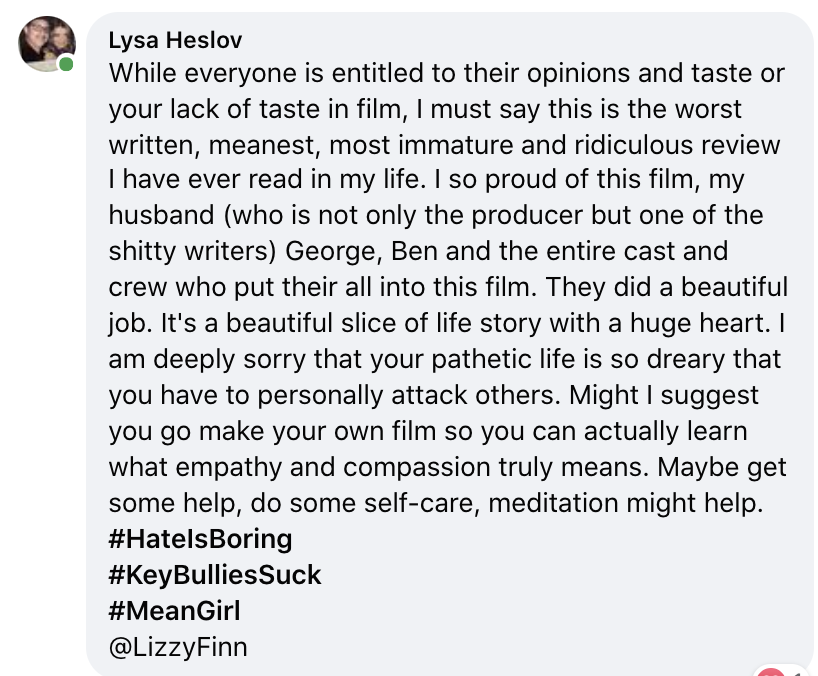
Lizzie replied to Lysa with a kind of “whadaya whadaya?” riff. I just wrote what I felt and thought, she said. I didn’t expect to hear back from anyone inside Team Clooney. I figured George and Grant wouldn’t give a shit one way or the other. Plus they’re rich and famous so who cares?, etc. To which Lysa replied as follows:
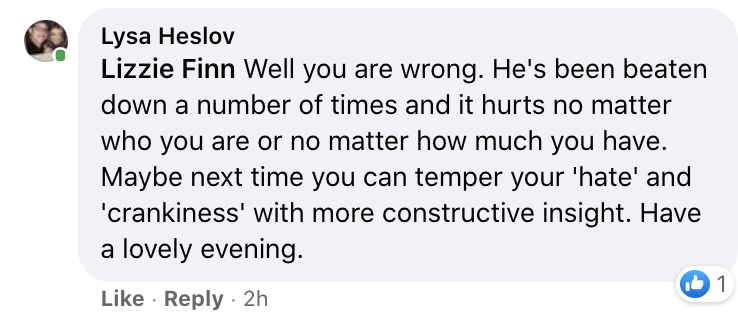
Here’s Lizzie’s poison-pen review:
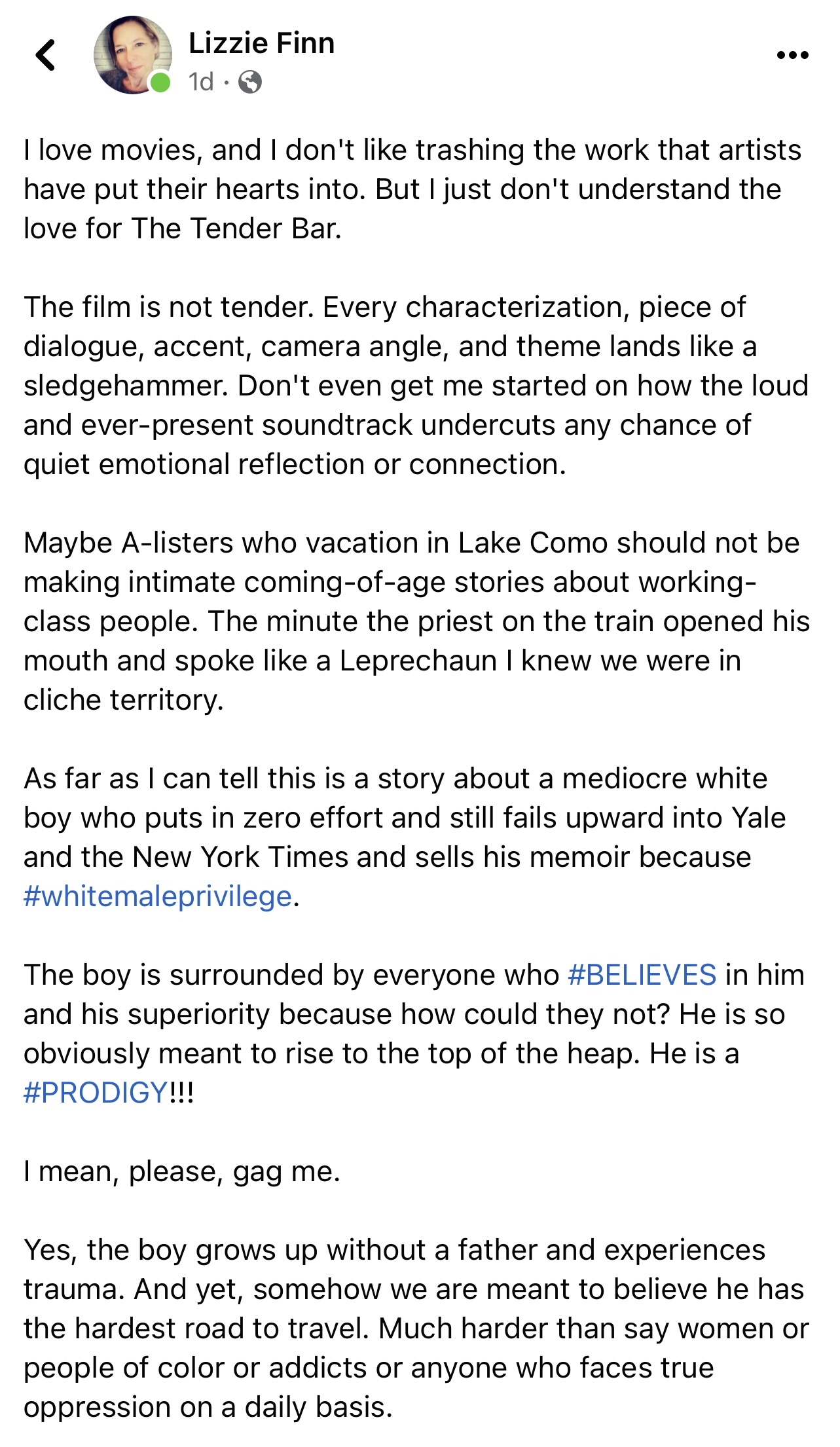
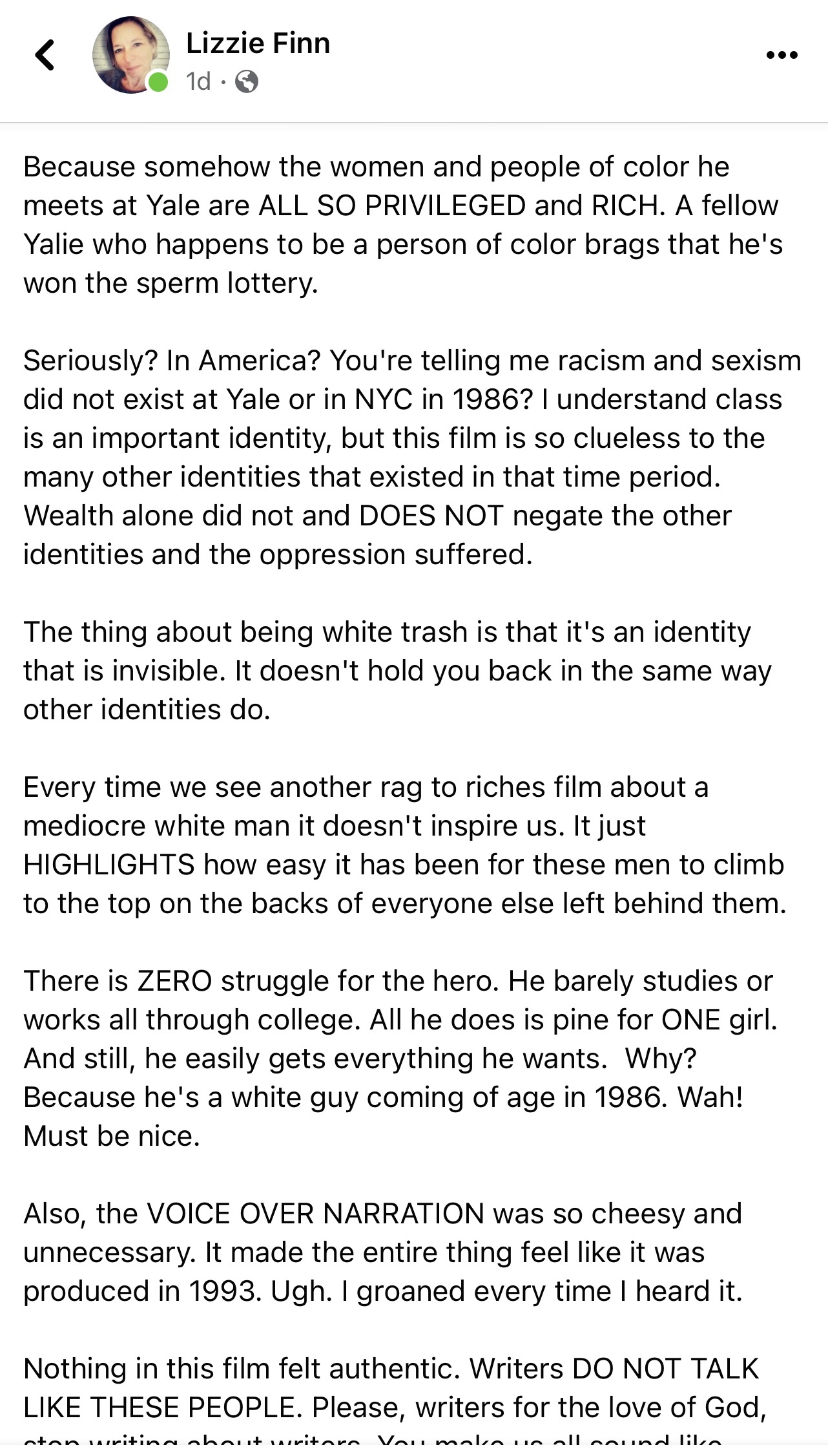
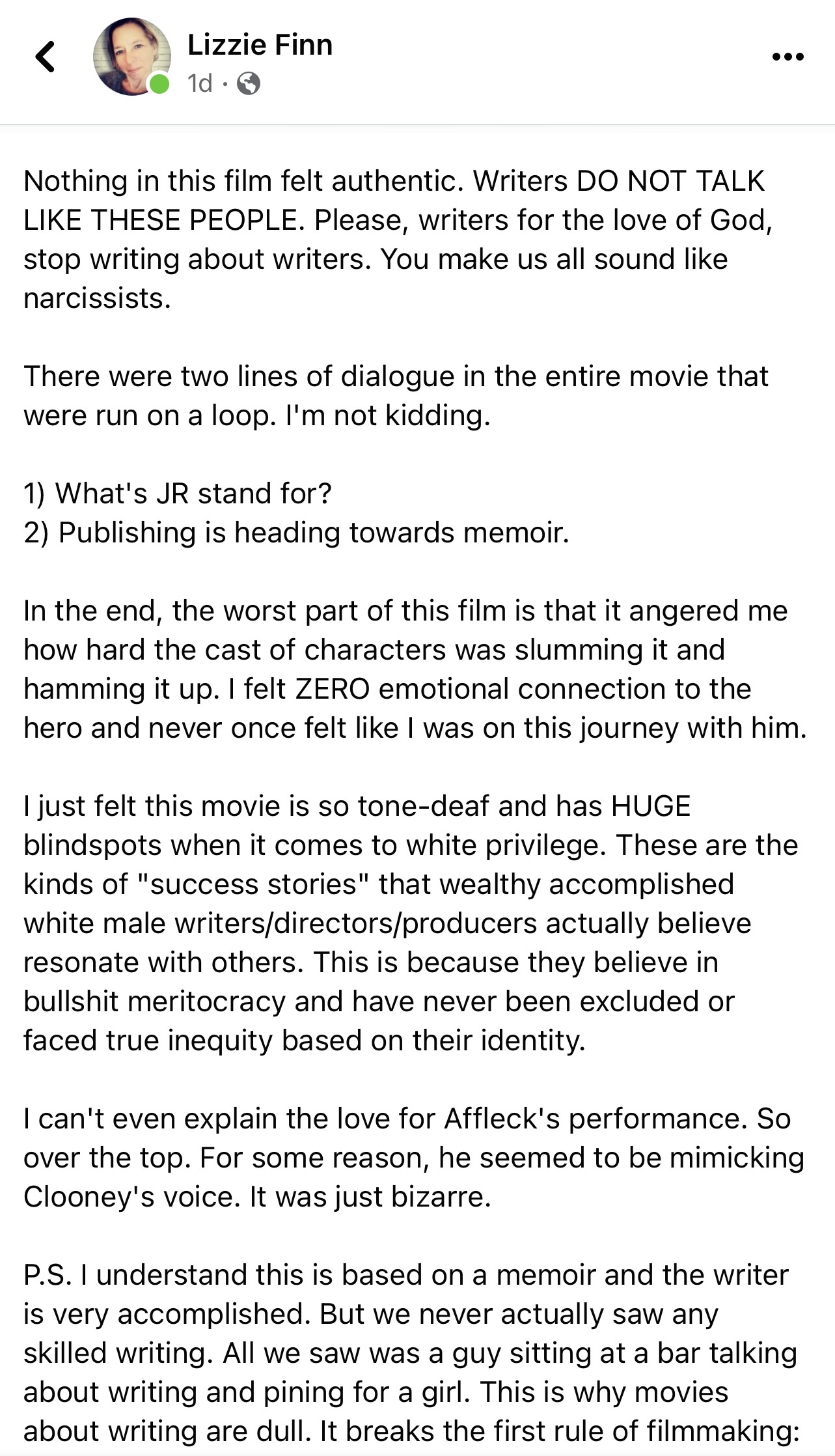
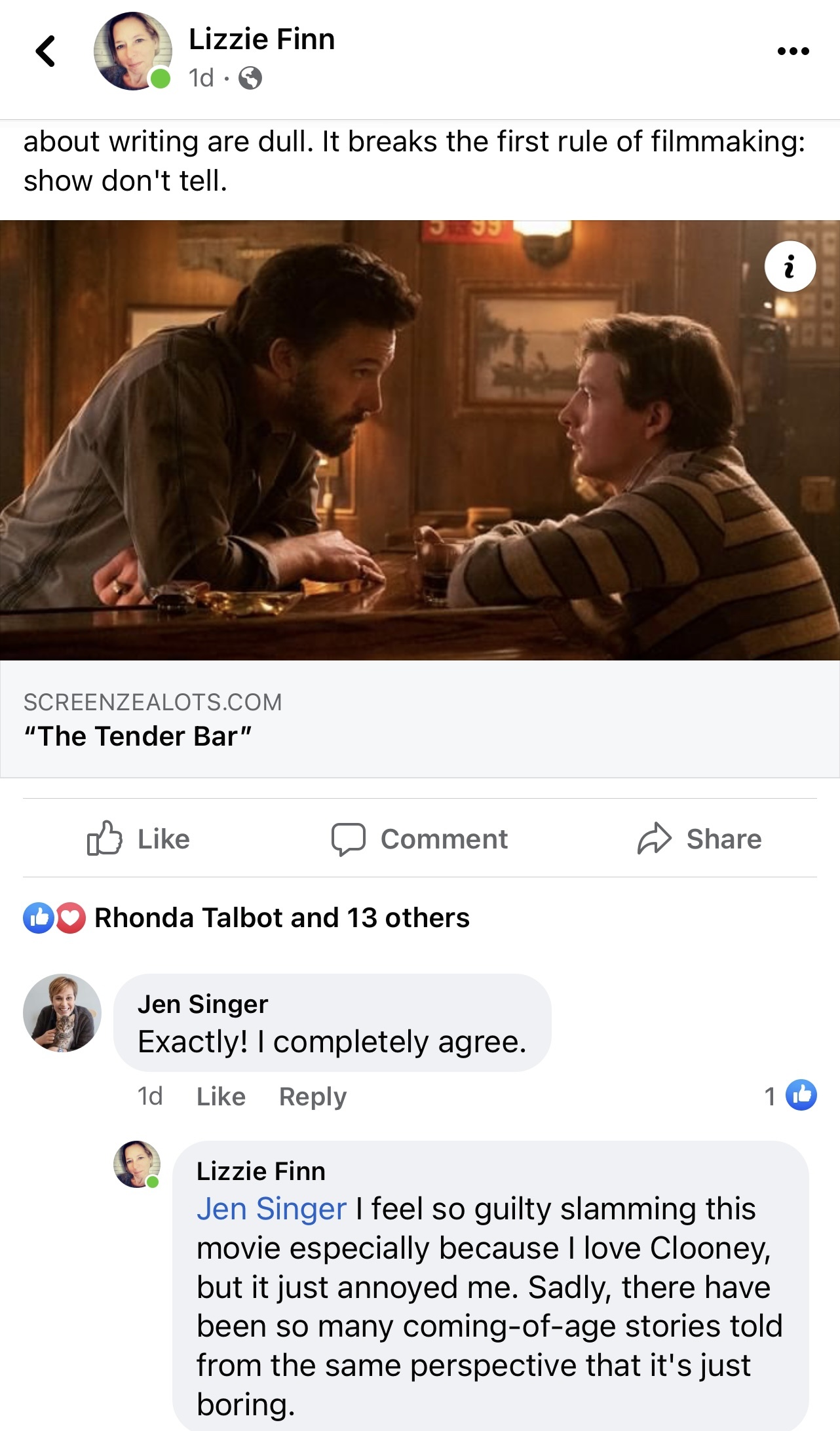
One of the complaints in my 10.10.21 Tender Bar review is the woke, inclusion-mandate casting –casting that defies the original character descriptions in J.R. Moehringer’s autobiographical, same-titled book.
The Tender Bar “changes the identity of a wealthy Westport white girl named Sydney, whom Moehringer fell in love with during his time at Yale, and who represents the unattainable ideal for a working-class kid from Manhasset. Clooney has changed Sydney from a blonde, Daisy Buchanan-like character with a small nose, ample breasts and whiter-than-white parents (her father is described by Moehringer as Hemingway-esque) into a beautiful woman of color (Briana Middleton) and her parents into an interracial couple (mom is played by Quincy Tyler Bernstine).
“The first word that came to mind was ‘again?’
“This is yet another example of virtue-signaling, inclusion-mandate casting, and particularly Clooney and producers Grant Heslov and Ted Hope wanting to groove along with the ethos of progressive woke Hollywood.
“I experienced youth in Wilton and Westport, and I personally knew of one couple of color (opera singer Betty Jones, a friend of my mom’s, and her husband) and heard about no interracial couples at all. That’s not to say there were none, but if they existed in the Wilton-Westport-Weston region they were very under-the-radar.”
Not a single professional film critic has mentioned this aspect…not one. Because critics aren’t allowed to mention ethnic casting choices. If they do they might be labelled as racist, and then they might get fired.
Well, guess what? On 1.10.22 educator Brooke Warner mentioned this very aspect!
Warner: “Excuse this aside, but it cannot be lost on any viewer that Sydney and Wesley, J.R.’s love interest and best friend, respectively, are Black. Yale’s current student body, in 2022, is 5% Black. It’s important (critical even) that Hollywood be paying attention to the dearth of Black roles in Hollywood, but am I the only one who was bothered by the fact that this is not addressed in the script? I am thinking about Kiese Laymon’s “Heavy”, which I hope will someday become a movie. In it, he dates a white girl and it’s a BIG deal. What if Kiese’s main love interest in college, Nzola, were cast as a white girl? The fact that Sydney’s ridiculously rich fictive Black parents would not address the elephant in the room of J.R.’s race and their thoughts about Sydney bringing home a white boy in the 1980s is absurd, and it’s absurd because it’s not true to the book. Sydney in the book is white.”













